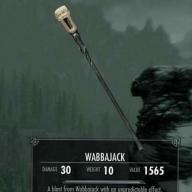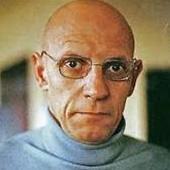
EspritHabile
-
Posts
105 -
Joined
-
Last visited
Reputation Activity
-
 EspritHabile got a reaction from Regimentations in Help! Competitiveness/Program Choice - Environmental/Southern/American Lit
EspritHabile got a reaction from Regimentations in Help! Competitiveness/Program Choice - Environmental/Southern/American Lit
Hello, and welcome!
I would add to your list the U. of Idaho (Scott Slovic and Erin James are there; both are great ecocrit folks. Scott is a pillar of ecocrit and works a lot with narrative scholarship and the interplay between personal writing and environmental writing. Erin is a poco-eco [post-colonial ecocritic] working on narrative theory in some fun ways.) as well as the University of Nevada, Reno. UNR's program was pretty much the flagship program in ecocrit but has since lost their specialized track in ecocrit and a few faculty who moved on to other institutions, but if you're into early american lit and ecocriticism, Mike Branch is still there and he is fantastic. There are also some other great new folks there, but I don't know them on a personal level so can't say much.
Everyone else has thoroughly covered the other advice I might have offered. Good luck on your search! What are your particular interests in ecocrit/environmental writing? What projects interest you? I'd be happy to talk shop.
-EH
-
 EspritHabile got a reaction from SnowAngel3535 in Self Care in Grad School
EspritHabile got a reaction from SnowAngel3535 in Self Care in Grad School
Yes! Living for this. I have been equally addicted to GradCafe and the skincareaddiction subreddit this winter.
When I started my MA program, my first meeting with my future thesis chair was a several-mile hike at what felt like Mach 2 speeds. On that hike, they gave me an excellent piece of self-care advice that has been very helpful to me ever since: No matter what else is going on or how busy you are, you should reserve 1 full day each week that is about taking care of your human needs. Don't read, don't research, don't write, don't grade, don't do email, and don't hold any meetings or study groups for just 1 day each week. Use that time to sleep, to play music, to play games, to go hiking or running or swimming or whatever-ing. Take a day for yourself to recharge, to reflect, and to have fun. Do whatever activities or non-activities allow you to recharge and reconnect with your more-than-just-a-student self.
It can be really difficult to stick to this, and you'll feel enormously guilty about taking time off from your studies, but it makes a huge difference in the long run in terms of avoiding burnout. In moments of weakness, I tell myself "it all gets done" and indeed, it does.
-
 EspritHabile got a reaction from M(allthevowels)H in 2019 PhD Cycle - Narrowing Down List of Programs
EspritHabile got a reaction from M(allthevowels)H in 2019 PhD Cycle - Narrowing Down List of Programs
Hey there, @swarthmawr! Welcome to the community, and to this wild ride that is the applications process. Other folks have already offered some great advice and answers to your questions. I want to double-down on some of that here and offer a few other things to consider.
First, the really general advice:
1. As others have rightly noted, there's no such thing as a "reach" or a "backup" school at the Ph.D. level. If you can't 100% see yourself being part of a program and getting out of it what you need/want, then do not apply. Similarly, do not apply to the top five programs just because they're top 5 according to some ranking. Which leads me to #2:
2. Prestige is not enough. There has been a LOT of debate on these fora about the importance of the USNWR rankings and prestige. Name recognition, access to ample resources, generous funding, and professional development opportunities, big-name POI to work with, and large alumni networks can certainly be helpful, but they are not enough. Instead, look very carefully at how a program's courses, faculty, resources, funding, and other opportunities mesh with your interests. It matters less how good your program looks on paper than how you and your work look on paper and in real life. PM me if you want anecdotes.
3. Fit is crucial. Fit is a tidy little word for a massive concept that takes time to figure out. A few of us here have applied and been accepted to the same programs and it has been fascinating to chat about why we are or aren't leaning toward a particular program.
How I figured out "Fit" (Sorry this is so bloody long; I hope this helps someone else.)
I only applied to five programs. They vary in terms of their particular resources and opportunities, but they all represent paths that I could envision leading me to where I want to be.
I started out by casting a wide net--I talked to friends, to colleagues, to mentors, I googled lists of programs and schools, and I scoured this forum. I began with a list of about 40 programs. Then I put that list away for a week and thought hard about my particular research interests. I narrowed those interests down into a few concrete goal statements and research questions, and then I started looking for articles, books, and conference panels that aligned with my interests. From there, I picked out a few scholars whose names kept popping up and I researched where they were trained and where they work now. Then I wrote the first draft of my statement of purpose. I kept it to 500 words and tried to cover ALL of my key experiences and goals.
I took a break from my SOP for a week, and then sat down and re-read it with fresh eyes. Then I went back to that list of 40 schools and started looking at the profiles, publications, and research interests of the faculty and students. I very quickly eliminated more than half of the programs on my list because they just didn't have enough/any people or resources that would help me do what I set forth in my SOP. I found 10 programs that seemed like decent fits, and then considered things like the geography, climate, and anecdotes from friends. I also looked at recent theses and dissertations, placement data, and talked to friends. I ultimately chose to apply to five programs that I deeply believe would all prepare me very well to meet my goals.
My mantra all along was "you only need one acceptance" so I made sure that I didn't bother applying to a place unless I believed that I would 1) feel 100% thrilled to be accepted by them as my only acceptance, and 2) thrive there. Having a really clear articulation of my goals and fit at each program helped me prepare my recommendation letter writers to back me up. It also helped me to really focus on how to craft a compelling writing sample that (as Old Bill suggests in his pinned post that should be required reading material), worked together with my SOP to paint a clear picture of how the program and I were a good match.
That said, the applications process is a crapshoot. I could have sent the exact same applications last year and been shut out.
-
 EspritHabile got a reaction from jusrain in 2019 PhD Cycle - Narrowing Down List of Programs
EspritHabile got a reaction from jusrain in 2019 PhD Cycle - Narrowing Down List of Programs
Hey there, @swarthmawr! Welcome to the community, and to this wild ride that is the applications process. Other folks have already offered some great advice and answers to your questions. I want to double-down on some of that here and offer a few other things to consider.
First, the really general advice:
1. As others have rightly noted, there's no such thing as a "reach" or a "backup" school at the Ph.D. level. If you can't 100% see yourself being part of a program and getting out of it what you need/want, then do not apply. Similarly, do not apply to the top five programs just because they're top 5 according to some ranking. Which leads me to #2:
2. Prestige is not enough. There has been a LOT of debate on these fora about the importance of the USNWR rankings and prestige. Name recognition, access to ample resources, generous funding, and professional development opportunities, big-name POI to work with, and large alumni networks can certainly be helpful, but they are not enough. Instead, look very carefully at how a program's courses, faculty, resources, funding, and other opportunities mesh with your interests. It matters less how good your program looks on paper than how you and your work look on paper and in real life. PM me if you want anecdotes.
3. Fit is crucial. Fit is a tidy little word for a massive concept that takes time to figure out. A few of us here have applied and been accepted to the same programs and it has been fascinating to chat about why we are or aren't leaning toward a particular program.
How I figured out "Fit" (Sorry this is so bloody long; I hope this helps someone else.)
I only applied to five programs. They vary in terms of their particular resources and opportunities, but they all represent paths that I could envision leading me to where I want to be.
I started out by casting a wide net--I talked to friends, to colleagues, to mentors, I googled lists of programs and schools, and I scoured this forum. I began with a list of about 40 programs. Then I put that list away for a week and thought hard about my particular research interests. I narrowed those interests down into a few concrete goal statements and research questions, and then I started looking for articles, books, and conference panels that aligned with my interests. From there, I picked out a few scholars whose names kept popping up and I researched where they were trained and where they work now. Then I wrote the first draft of my statement of purpose. I kept it to 500 words and tried to cover ALL of my key experiences and goals.
I took a break from my SOP for a week, and then sat down and re-read it with fresh eyes. Then I went back to that list of 40 schools and started looking at the profiles, publications, and research interests of the faculty and students. I very quickly eliminated more than half of the programs on my list because they just didn't have enough/any people or resources that would help me do what I set forth in my SOP. I found 10 programs that seemed like decent fits, and then considered things like the geography, climate, and anecdotes from friends. I also looked at recent theses and dissertations, placement data, and talked to friends. I ultimately chose to apply to five programs that I deeply believe would all prepare me very well to meet my goals.
My mantra all along was "you only need one acceptance" so I made sure that I didn't bother applying to a place unless I believed that I would 1) feel 100% thrilled to be accepted by them as my only acceptance, and 2) thrive there. Having a really clear articulation of my goals and fit at each program helped me prepare my recommendation letter writers to back me up. It also helped me to really focus on how to craft a compelling writing sample that (as Old Bill suggests in his pinned post that should be required reading material), worked together with my SOP to paint a clear picture of how the program and I were a good match.
That said, the applications process is a crapshoot. I could have sent the exact same applications last year and been shut out.
-
 EspritHabile got a reaction from marisawhy in 2019 PhD Cycle - Narrowing Down List of Programs
EspritHabile got a reaction from marisawhy in 2019 PhD Cycle - Narrowing Down List of Programs
Hey there, @swarthmawr! Welcome to the community, and to this wild ride that is the applications process. Other folks have already offered some great advice and answers to your questions. I want to double-down on some of that here and offer a few other things to consider.
First, the really general advice:
1. As others have rightly noted, there's no such thing as a "reach" or a "backup" school at the Ph.D. level. If you can't 100% see yourself being part of a program and getting out of it what you need/want, then do not apply. Similarly, do not apply to the top five programs just because they're top 5 according to some ranking. Which leads me to #2:
2. Prestige is not enough. There has been a LOT of debate on these fora about the importance of the USNWR rankings and prestige. Name recognition, access to ample resources, generous funding, and professional development opportunities, big-name POI to work with, and large alumni networks can certainly be helpful, but they are not enough. Instead, look very carefully at how a program's courses, faculty, resources, funding, and other opportunities mesh with your interests. It matters less how good your program looks on paper than how you and your work look on paper and in real life. PM me if you want anecdotes.
3. Fit is crucial. Fit is a tidy little word for a massive concept that takes time to figure out. A few of us here have applied and been accepted to the same programs and it has been fascinating to chat about why we are or aren't leaning toward a particular program.
How I figured out "Fit" (Sorry this is so bloody long; I hope this helps someone else.)
I only applied to five programs. They vary in terms of their particular resources and opportunities, but they all represent paths that I could envision leading me to where I want to be.
I started out by casting a wide net--I talked to friends, to colleagues, to mentors, I googled lists of programs and schools, and I scoured this forum. I began with a list of about 40 programs. Then I put that list away for a week and thought hard about my particular research interests. I narrowed those interests down into a few concrete goal statements and research questions, and then I started looking for articles, books, and conference panels that aligned with my interests. From there, I picked out a few scholars whose names kept popping up and I researched where they were trained and where they work now. Then I wrote the first draft of my statement of purpose. I kept it to 500 words and tried to cover ALL of my key experiences and goals.
I took a break from my SOP for a week, and then sat down and re-read it with fresh eyes. Then I went back to that list of 40 schools and started looking at the profiles, publications, and research interests of the faculty and students. I very quickly eliminated more than half of the programs on my list because they just didn't have enough/any people or resources that would help me do what I set forth in my SOP. I found 10 programs that seemed like decent fits, and then considered things like the geography, climate, and anecdotes from friends. I also looked at recent theses and dissertations, placement data, and talked to friends. I ultimately chose to apply to five programs that I deeply believe would all prepare me very well to meet my goals.
My mantra all along was "you only need one acceptance" so I made sure that I didn't bother applying to a place unless I believed that I would 1) feel 100% thrilled to be accepted by them as my only acceptance, and 2) thrive there. Having a really clear articulation of my goals and fit at each program helped me prepare my recommendation letter writers to back me up. It also helped me to really focus on how to craft a compelling writing sample that (as Old Bill suggests in his pinned post that should be required reading material), worked together with my SOP to paint a clear picture of how the program and I were a good match.
That said, the applications process is a crapshoot. I could have sent the exact same applications last year and been shut out.
-
 EspritHabile got a reaction from nichts in 2019 PhD Cycle - Narrowing Down List of Programs
EspritHabile got a reaction from nichts in 2019 PhD Cycle - Narrowing Down List of Programs
Hey there, @swarthmawr! Welcome to the community, and to this wild ride that is the applications process. Other folks have already offered some great advice and answers to your questions. I want to double-down on some of that here and offer a few other things to consider.
First, the really general advice:
1. As others have rightly noted, there's no such thing as a "reach" or a "backup" school at the Ph.D. level. If you can't 100% see yourself being part of a program and getting out of it what you need/want, then do not apply. Similarly, do not apply to the top five programs just because they're top 5 according to some ranking. Which leads me to #2:
2. Prestige is not enough. There has been a LOT of debate on these fora about the importance of the USNWR rankings and prestige. Name recognition, access to ample resources, generous funding, and professional development opportunities, big-name POI to work with, and large alumni networks can certainly be helpful, but they are not enough. Instead, look very carefully at how a program's courses, faculty, resources, funding, and other opportunities mesh with your interests. It matters less how good your program looks on paper than how you and your work look on paper and in real life. PM me if you want anecdotes.
3. Fit is crucial. Fit is a tidy little word for a massive concept that takes time to figure out. A few of us here have applied and been accepted to the same programs and it has been fascinating to chat about why we are or aren't leaning toward a particular program.
How I figured out "Fit" (Sorry this is so bloody long; I hope this helps someone else.)
I only applied to five programs. They vary in terms of their particular resources and opportunities, but they all represent paths that I could envision leading me to where I want to be.
I started out by casting a wide net--I talked to friends, to colleagues, to mentors, I googled lists of programs and schools, and I scoured this forum. I began with a list of about 40 programs. Then I put that list away for a week and thought hard about my particular research interests. I narrowed those interests down into a few concrete goal statements and research questions, and then I started looking for articles, books, and conference panels that aligned with my interests. From there, I picked out a few scholars whose names kept popping up and I researched where they were trained and where they work now. Then I wrote the first draft of my statement of purpose. I kept it to 500 words and tried to cover ALL of my key experiences and goals.
I took a break from my SOP for a week, and then sat down and re-read it with fresh eyes. Then I went back to that list of 40 schools and started looking at the profiles, publications, and research interests of the faculty and students. I very quickly eliminated more than half of the programs on my list because they just didn't have enough/any people or resources that would help me do what I set forth in my SOP. I found 10 programs that seemed like decent fits, and then considered things like the geography, climate, and anecdotes from friends. I also looked at recent theses and dissertations, placement data, and talked to friends. I ultimately chose to apply to five programs that I deeply believe would all prepare me very well to meet my goals.
My mantra all along was "you only need one acceptance" so I made sure that I didn't bother applying to a place unless I believed that I would 1) feel 100% thrilled to be accepted by them as my only acceptance, and 2) thrive there. Having a really clear articulation of my goals and fit at each program helped me prepare my recommendation letter writers to back me up. It also helped me to really focus on how to craft a compelling writing sample that (as Old Bill suggests in his pinned post that should be required reading material), worked together with my SOP to paint a clear picture of how the program and I were a good match.
That said, the applications process is a crapshoot. I could have sent the exact same applications last year and been shut out.
-
 EspritHabile got a reaction from sarahchristine in 2019 PhD Cycle - Narrowing Down List of Programs
EspritHabile got a reaction from sarahchristine in 2019 PhD Cycle - Narrowing Down List of Programs
Hey there, @swarthmawr! Welcome to the community, and to this wild ride that is the applications process. Other folks have already offered some great advice and answers to your questions. I want to double-down on some of that here and offer a few other things to consider.
First, the really general advice:
1. As others have rightly noted, there's no such thing as a "reach" or a "backup" school at the Ph.D. level. If you can't 100% see yourself being part of a program and getting out of it what you need/want, then do not apply. Similarly, do not apply to the top five programs just because they're top 5 according to some ranking. Which leads me to #2:
2. Prestige is not enough. There has been a LOT of debate on these fora about the importance of the USNWR rankings and prestige. Name recognition, access to ample resources, generous funding, and professional development opportunities, big-name POI to work with, and large alumni networks can certainly be helpful, but they are not enough. Instead, look very carefully at how a program's courses, faculty, resources, funding, and other opportunities mesh with your interests. It matters less how good your program looks on paper than how you and your work look on paper and in real life. PM me if you want anecdotes.
3. Fit is crucial. Fit is a tidy little word for a massive concept that takes time to figure out. A few of us here have applied and been accepted to the same programs and it has been fascinating to chat about why we are or aren't leaning toward a particular program.
How I figured out "Fit" (Sorry this is so bloody long; I hope this helps someone else.)
I only applied to five programs. They vary in terms of their particular resources and opportunities, but they all represent paths that I could envision leading me to where I want to be.
I started out by casting a wide net--I talked to friends, to colleagues, to mentors, I googled lists of programs and schools, and I scoured this forum. I began with a list of about 40 programs. Then I put that list away for a week and thought hard about my particular research interests. I narrowed those interests down into a few concrete goal statements and research questions, and then I started looking for articles, books, and conference panels that aligned with my interests. From there, I picked out a few scholars whose names kept popping up and I researched where they were trained and where they work now. Then I wrote the first draft of my statement of purpose. I kept it to 500 words and tried to cover ALL of my key experiences and goals.
I took a break from my SOP for a week, and then sat down and re-read it with fresh eyes. Then I went back to that list of 40 schools and started looking at the profiles, publications, and research interests of the faculty and students. I very quickly eliminated more than half of the programs on my list because they just didn't have enough/any people or resources that would help me do what I set forth in my SOP. I found 10 programs that seemed like decent fits, and then considered things like the geography, climate, and anecdotes from friends. I also looked at recent theses and dissertations, placement data, and talked to friends. I ultimately chose to apply to five programs that I deeply believe would all prepare me very well to meet my goals.
My mantra all along was "you only need one acceptance" so I made sure that I didn't bother applying to a place unless I believed that I would 1) feel 100% thrilled to be accepted by them as my only acceptance, and 2) thrive there. Having a really clear articulation of my goals and fit at each program helped me prepare my recommendation letter writers to back me up. It also helped me to really focus on how to craft a compelling writing sample that (as Old Bill suggests in his pinned post that should be required reading material), worked together with my SOP to paint a clear picture of how the program and I were a good match.
That said, the applications process is a crapshoot. I could have sent the exact same applications last year and been shut out.
-
 EspritHabile got a reaction from Wabbajack in Oh, The Places You'll Go! (Decisions 2018)
EspritHabile got a reaction from Wabbajack in Oh, The Places You'll Go! (Decisions 2018)
Yay! Congratulations on your great offers and final decision!
-
 EspritHabile reacted to Wabbajack in Oh, The Places You'll Go! (Decisions 2018)
EspritHabile reacted to Wabbajack in Oh, The Places You'll Go! (Decisions 2018)
I love picturing a surfing Foucault... being freaky. CONGRATS!!
And congrats to everyone else here too!!
I have officially accepted my offer from Clemson.
-
 EspritHabile reacted to ClassyBrat420 in Let’s talk books
EspritHabile reacted to ClassyBrat420 in Let’s talk books
Y'all a bunch of lit nerds making me doubt my nerd status with your smart books. I'm over here reading sci-fi. Albeit, great sci-fi. Lilith's Brood by Octavia butler is PRIMO. Followed closely by Parable of the Sower, which was just adapted into the queerest, radicalist, bombest play I've seen ever.
-
 EspritHabile got a reaction from FreakyFoucault in Oh, The Places You'll Go! (Decisions 2018)
EspritHabile got a reaction from FreakyFoucault in Oh, The Places You'll Go! (Decisions 2018)
Yaaay! So exciting! Congratulations!
I am so pumped to see folks making their decisions and entering the "oh god, gotta move to awesome places now" phase of the process. <3
-
 EspritHabile reacted to FreakyFoucault in Oh, The Places You'll Go! (Decisions 2018)
EspritHabile reacted to FreakyFoucault in Oh, The Places You'll Go! (Decisions 2018)
Very happy to report that I signed my soul over to Stanford last week!
Now to learn how to surf...
-
 EspritHabile reacted to agunns in Oh, The Places You'll Go! (Decisions 2018)
EspritHabile reacted to agunns in Oh, The Places You'll Go! (Decisions 2018)
I officially accepted an offer from IU-Bloomington! It's so hard to believe that the process is finally over.
-
 EspritHabile reacted to LeeLeeCzechIrish in Quit Playing Games (With My Heart) / Projected Rejections
EspritHabile reacted to LeeLeeCzechIrish in Quit Playing Games (With My Heart) / Projected Rejections
AAAAANNNd a Fordham rejection wraps it up for me! Absolutely thrilled and so fortunate to be going to UConn next year! Good luck to those still waiting to make decisions!!
Off to check the schedule for the women's b-ball tournament!
-
 EspritHabile got a reaction from mk-8 in 2018 Acceptances
EspritHabile got a reaction from mk-8 in 2018 Acceptances
Congratulations! That's a fabulous program and I am absolutely awestruck by the scholarship coming from WSU grads.
-

-
 EspritHabile got a reaction from klader in Here Comes the Sun/ Waitlist Movements
EspritHabile got a reaction from klader in Here Comes the Sun/ Waitlist Movements
Hey folks: I'm likely swiping left on Purdue.
Is it time to post a "decisions" thread?
-
 EspritHabile reacted to punctilious in Oh, The Places You'll Go! (Decisions 2018)
EspritHabile reacted to punctilious in Oh, The Places You'll Go! (Decisions 2018)
These are obviously both fantastic opportunities--huge congratulations! I think its highly subjective and difficult to calculate, but there are a whole lot of questions you could ask yourself, of course.
What is your most pressing desire for you right now? To become a creative writer or an academic? You can do both, of course. But what do you want to focus on? Where do you prefer to live for the next 2-6 years? Would you fit in better to one program or another, based on the vibe of the students? Do the faculty at one institution or another draw you in? You can of course do a PhD after an MFA, but are you okay with the possibility that you won't get into a program of that caliber again (or any program at all)? Do you have a goal for a creative project you want to complete in the program (if not, it may not be a good time to pursue an MFA)? My husband debated also applying to MFAs, and this might not apply to you, but he ultimately decided not to because 1) He felt he could improve his creative writing on his own while in a PhD program, but couldn't get the qualifications to be a literature professor while in an MFA, 2) He is semi-skeptical about the benefits of an MFA, as plenty of great writers publish without an MFA (not to say they aren't valuable), 3) There wasn't necessarily an MFA program that called to him or seemed like an ideal fit, 4) A lot of PhD programs also allow students to pursue creative writing coursework (this is something you may ask Berkeley about). He's happy to hear that creative writing is big (and getting bigger) at Harvard, so that's something he can engage in while he's there.
We're looking forward to hearing what you decide!
-
 EspritHabile got a reaction from nichts in Anyone else doing comp lit?
EspritHabile got a reaction from nichts in Anyone else doing comp lit?
Boo for existential crises, but yay for getting onto the wait lists! Fingers crossed for you!
-
 EspritHabile reacted to PsychedSloth in Reno, NV
EspritHabile reacted to PsychedSloth in Reno, NV
Thank you so much! I'll form a list of decent questions and then message you.
-
 EspritHabile got a reaction from PsychedSloth in Reno, NV
EspritHabile got a reaction from PsychedSloth in Reno, NV
Hi there!
I used to live in Reno and now live in the Midwest.
Housing prices in Reno are increasing because the city is booming. But utilities are (ar at least were) pretty cheap, there's a free shuttlebus that will go from the university to the downtown, and you get can groceries for hella cheap at WINCO. There's also a great food co-op downtown. Shit tons of art, music, great food. I absolutely loved Reno and found it very affordable. I'm happy to chat via PM if you have other questions.
-
 EspritHabile got a reaction from clinamen in Here Comes the Sun/ Waitlist Movements
EspritHabile got a reaction from clinamen in Here Comes the Sun/ Waitlist Movements
Seattle is a wonderful place! I hope your waitlist turns into even better news (and golly, do you have some tough decisions to make with all that green in your signature line)!
-
 EspritHabile got a reaction from Crow T. Robot in Post-Acceptance, Pre-Visit
EspritHabile got a reaction from Crow T. Robot in Post-Acceptance, Pre-Visit
@Crow T. Robot, you are certainly not alone!
One program assured me that folks would be in touch soon after my acceptance. It took about 3 weeks or so, but then they REALLY got in touch. I have since received multiple emails from faculty (oh god, they are all so nice!), and incredibly generous emails and phone calls from grad students. I've been given straight answers to all of my questions, sample syllabi and job duties explanations, etc. etc. I'm being wooed. It's nice. And without prompting, students have said that the kindness, accessibility, and helpfulness of the program's folks continues beyond this courting phase. That makes me feel good about my prior assessment of fit at this program. And a LOT of helpful info is available on the website, so it seems like the institution as a whole does a good job of making expectations and resources readily accessible.
Another program was being awkward about notifications, addressed my admissions letter to *not my name* and has not followed up with me. I've also not been contacted by a single faculty member, and the graduate student who was asked to email me ghosted (going on a month now). I've heard great things about the program from other people, and obviously I thought they were a good fit or I wouldn't have applied, but the total breakdown/lack of communication significantly shapes my impressions.
Another program was very outgoing, friendly, and responsive but did not give me straight answers to some of my key questions. They kinda seemed like they didn't know some of the basic info they should, which was a little alarming. And on one point, they refused to come out and say "no" and instead beat around the bush and tried to couch their response in some weirdly unrelated information. And it's not like I am asking inappropriate or privileged questions. Their website also has a lot of missing or contradictory info, so while I still like this program a lot for the POI, curriculum, and professional opportunities, and the funding is a-mazing, I'm on the fence.
Yet another program has been SO FREAKING NICE and helpful and charming and lovely. In the course of conversations with their faculty and students I realized they're not the right fit for my Ph.D. aspirations but holy crap do I wish I'd done my MA work there.
-
 EspritHabile got a reaction from maengret in Projected Acceptance Dates for English PHD programs
EspritHabile got a reaction from maengret in Projected Acceptance Dates for English PHD programs
Sure, I'll PM you once I get to a computer.
-
 EspritHabile got a reaction from Wabbajack in Oh, The Places You'll Go! (Decisions 2018)
EspritHabile got a reaction from Wabbajack in Oh, The Places You'll Go! (Decisions 2018)
You have brains in your head. You have feet in your shoes. You can steer yourself any direction you choose. You're on your own. And you know what you know. And YOU are the one who'll decide where to go...
So: Where are you going? What factors are influencing your final decision? What criteria for assessing the best fit have emerged during this decision making process? How are you sharing your decisions with programs, family, employers, and that old psychic woman from the results thread?








